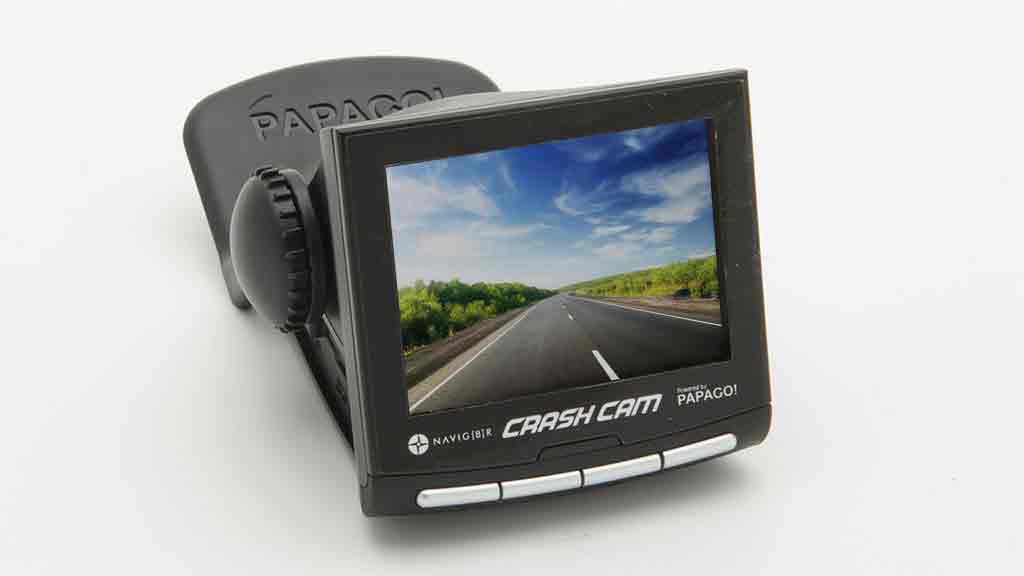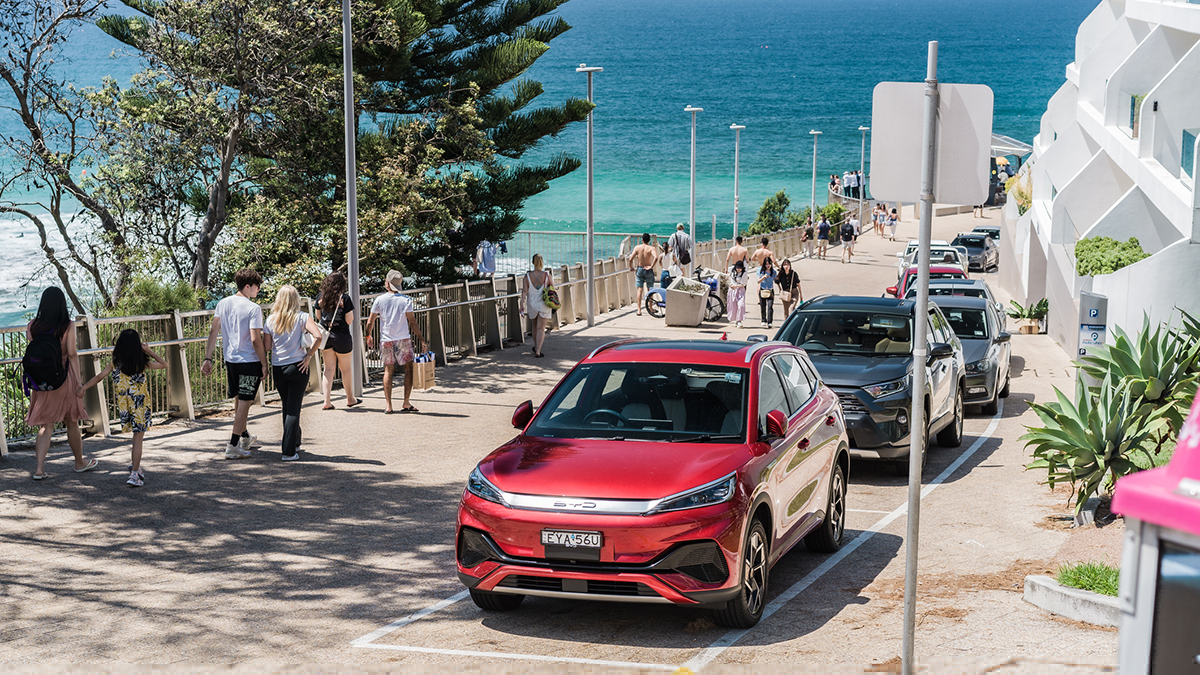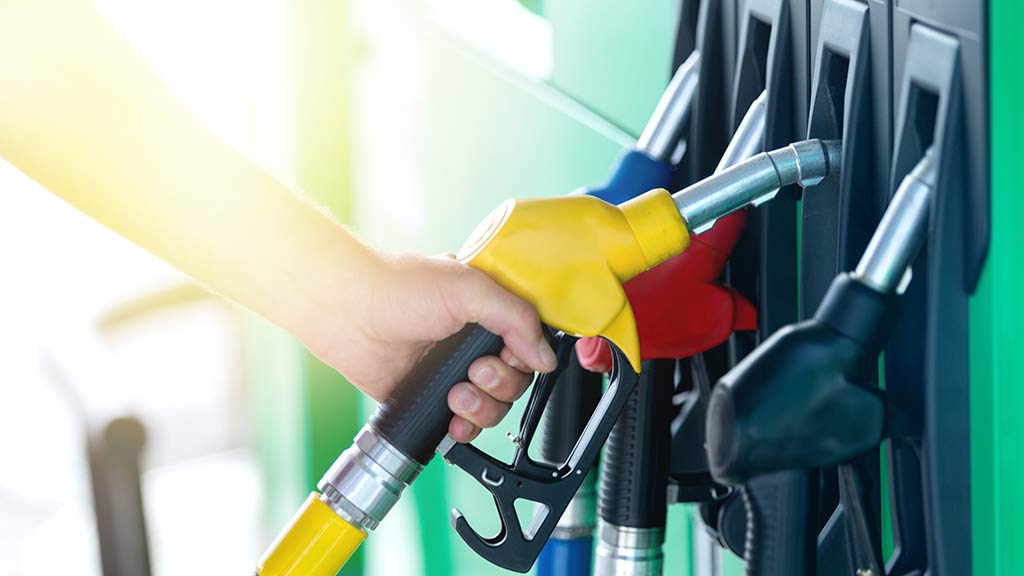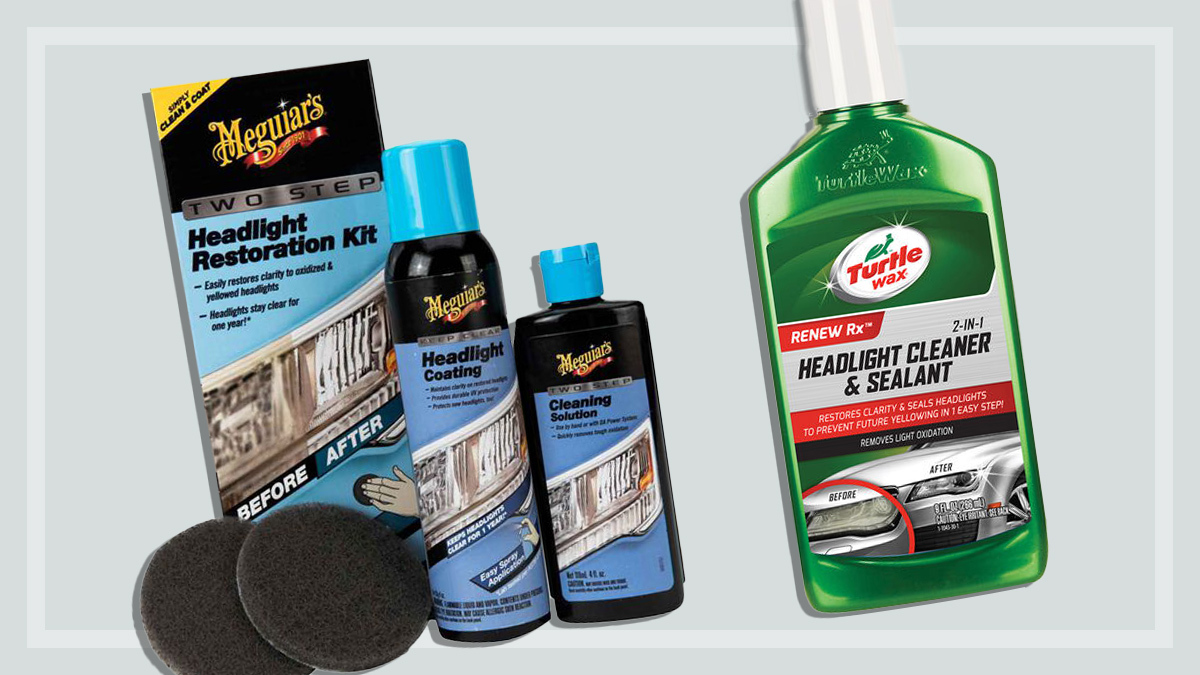Get our independent lab tests, expert reviews and honest advice.
New car? The extras that are worth getting

Car dealers have a habit of trying to sell you stuff you probably don’t need, after you’ve already laid out a small fortune or taken out financing for a brand new car.
On this page:
- Do your research before going to the dealership
- Unnecessary new car extras
- New car extras to consider
- New car extras to consider for safety reasons
- Other new car extras you might need
Some optional extras – like premium paint colours, alloy wheels and spoilers – are a matter of personal taste. If that’s how you want to roll and you’re willing to pay extra, so be it.
But the dealer may push other options that sound like they should have been included in the first place, such as rustproofing, paint protection, extra airbags or an extended warranty.
Are any of these really necessary or worth the money? Sometimes, but not very often.
Do your research before going to the dealership
It seems that every car dealer has gone to the same salesmanship school – they tend to throw in a few optional extras to sweeten the deal and whet your appetite for more add-ons.
It’s important to know the dollar value of what they’re spruiking. Before you go shopping for a new car, check the manufacturers’ websites. Most list the available options with prices and let you experiment with configuring a car in different ways. It may turn out that the sales sweeteners aren’t so sweet.
With a little advance online work, you’ll be in a much better position to negotiate a deal for any extras that you actually need – or at least want – when you step into the showroom.
What car extras do you need?
Name of extra: Extended warranty.
What is it? A commission for salespeople.
Do you need it? No. All new cars come with warranties.
Name of extra: Rustproofing.
What is it? Claimed extra rustproofing.
Do you need it? No. All new cars already have it, and it’s covered under warranty.
Name of extra: Paint protection.
What is it? Claimed extra paint protection.
Do you need it? No. All new cars already have it, and it’s covered under warranty.
Name of extra: Fabric protection.
What is it? Can be just the dealer using cans of fabric protector.
Do you need it? No. You can do it yourself for much cheaper.
Name of extra: Alarms.
What is it? A noisy alarm that goes off, sometimes accidentally.
Do you need it? No. All new cars have engine immobilisers – if you want an extra alarm, compare the price to aftermarket solutions.
Name of extra: Floor mats.
What is it? Mats that cover your floor where your feet can track in mud.
Do you need it? Maybe. Can be quite expensive compared to aftermarket options.
Name of extra: Seat covers.
What is it? To protect the seat from marks, potentially children or pets.
Do you need it? Maybe. Can be quite expensive compared to aftermarket options.
Name of extra: Boot liner.
What is it? Protects the boot from scuff marks and mud.
Do you need it? Maybe. Can be quite expensive compared to aftermarket options.
Name of extra: GPS device.
What is it? GPS device built into the dashboard.
Do you need it? No. Expensive to update (upwards of $600), whereas your phone auto updates and a mounting device is cheap.
Name of extra: Headlight protector.
What is it? Plastic overlays, designed to sit on your lights.
Do you need it? Maybe. Only if you’re going off-road, which the vast majority of us do not – if so, compare the aftermarket.
Name of extra: Bonnet protector.
What is it? Plastic overlays, designed to sit on your bonnet.
Do you need it? Maybe. Only if you’re going off-road, which the vast majority of us do not – if so, compare the aftermarket.
Name of extra: Nudge bar.
What is it? Designed to protect the car from minimal collisions.
Do you need it? Maybe. Not really necessary for the vast majority, but if so, a dealer installation will take into account vehicle airbag systems.
Name of extra: Bull bar.
What is it? Designed to protect from animal or vehicle collisions.
Do you need it? Maybe. Not really necessary for the vast majority, but if so, getting a dealer installation will take into account vehicle airbag systems.
Name of extra: Premium sound system.
What is it? Designed to improve your sound experience.
Do you need it? Maybe. Have a listen to the installed one first – it might be enough.
Name of extra: Special suspension.
What is it? Sports (firm, lower ride) or Country road (higher ride) suspension.
Do you need it? Maybe. Try out the standard version first before committing yourself to the high expense.
Name of extra: Towbar.
What is it? For towing caravans, boats, trailers.
Do you need it? Maybe. Get some aftermarket quotes first – it’s likely the dealer quote is more expensive.
Name of extra: Window tinting.
What is it? Darkens the windows of the car.
Do you need it? Maybe. This is standard on most cars – compare to the aftermarket if your privacy is important.
Name of extra: Extra airbags.
What is it? Sometimes they don’t come as default in side or curtain.
Do you need it? Yes. Worth the extra price to protect the driver and passengers.
Name of extra: Stability control
What is it? Anti-skid protection brakes individual wheels.
Do you need it? Yes. Worth it if it doesn’t come standard on some cheaper models.
Name of extra: Spare tyre.
What is it? Useful extra tyre that is stored in the boot.
Do you need it? Maybe. Most come with patch kits of space savers, which are useful to get you to a repair garage. Consider getting a full-sized spare if you drive long distances.
Name of extra: Rear view camera.
What is it? When reversing, displays a view of the rear to avoid collision.
Do you need it? Maybe. Very useful for cars with poor visibility (SUVs), but also available aftermarket.
Name of extra: Digital radio.
What is it? Available radio option that shows song names without attracting data pricing.
Do you need it? No. While the stations are clearer with better sound, they’re only available in major cities and AM/FM isn’t going anywhere for a while – internet radio is also more commonly available via your smartphone.
Name of extra: Bluetooth.
What is it? Useful phone connection.
Do you need it? Maybe. Good for GPS narration via your stereo system, playing internet radio, or phone calls.
Name of extra: Alloy tyres – low profile.
What is it? Nice looking tyres and rims that can improve precision driving.
Do you need it? No. You’ll feel more bumps from the road, tyre replacements will be more expensive and they’re more likely to puncture.
Name of extra: Metallic paint.
What is it? Aesthetically pleasing paint.
Do you need it? No. It should come as a standard option – if not, find a quote in the aftermarket as it is sometimes cheaper.
Name of extra: AEB.
What is it? Autonomous Emergency Braking uses radars to measure distance to vehicles and brakes if the distance reduces too quickly.
Do you need it? Yes. It’s a safety feature that could save your life – it should be standard, but as of right now it’s not.
Name of extra: Blind spot monitoring.
What is it? Warns of cars running alongside.
Do you need it? Yes. It’s a safety feature that could save your life – it should be standard, but as of right now it’s not.
Name of extra: Sunroof.
What is it? Usually rolls back to reveal the weather overhead.
Do you need it? Maybe. Assess how often will you realistically use it, and know you’ll need to clean out the leaves and dust that accumulate around it.
Name of extra: Reversing sensors.
What is it? Beeps that warn how close you are to cars or obstructions when reversing.
Do you need it? Maybe. Can be annoying, but also very useful when parking in tight car parks.
Name of extra: Maintenance plans.
What is it? These are pre-paid servicing costs that you can pay ahead of time that include a bunch of services.
Do you need it? No. Ask how much servicing costs, check service costs from independent dealers and avoid bundling paying interest on servicing if you’re taking out a loan.
Name of extra: Roof racks.
What is it? For carrying more storage on the roof.
Do you need it? No. Much cheaper to go aftermarket.
Name of extra: Heated or cooled seats.
What is it? Runs air con into the seat back and seat.
Do you need it? Maybe. Can be useful in our varying climate – some cars only offer one version so avoid only heated seats in Darwin and cooled seats in Tassie.
Name of extra: Active headlights.
What is it? Additional headlights that light up a bend when you turn into it. Some even swivel the main headlight into the turn.
Do you need it? Maybe. Can be useful, especially in twisty, convoluted hairpin-turn mountain areas.
Name of extra: Tyre pressure monitor systems.
What is it? Detects air pressure in tyres, alerting you to when they need inflating.
Do you need it? Maybe. TPMS can be purchased aftermarket, or indirectly the ABS can detect these in advanced systems
Name of extra: Forward collision warning.
What is it? An audible and/or visual warning that collision may occur.
Do you need it? Yes. It’s a safety feature that could save your life – it should be standard, but as of right now it’s not.
Name of extra: Automatic high beams.
What is it? This activates the high beams when there is no oncoming traffic.
Do you need it? Maybe. It’s a useful safety feature to light up the road ahead of you – and turn them back off when a car approaches.
Name of extra: Dedicated smartphone connectivity such as Android Auto or Apple CarPlay.
What is it? These connectivity options make it much more seamless to activate your smartphone through the dash rather than being tempted to pick it up.
Do you need it? Maybe. As long as the integration is done well, it’s a very useful aspect to avoid serious fines.
Name of extra: Auto dimming mirrors.
What is it? Rearview mirrors will darken when there are bright lights in the rearview.
Do you need it? Maybe. Stops you from being distracted by bright lights and allows you to pay attention to both rear and front views.
Name of extra: Keyless entry.
What is it? Where the car detects the key fob and auto opens, either without touch or while touching the car.
Do you need it? Maybe. It could be useful if you have a few bags of groceries or arms full of children so you don’t need to dig around in a pocket or handbag.
Name of extra: Rear entertainment systems.
What is it? A popup display for the rear to view movies or games.
Do you need it? No. It’s simpler to just hang a tablet on the back of the headrest with your own selection of movies and TV shows rather than to have arguments about what to play or watch.
Unnecessary new car extras
Extended dealer warranties
Extended dealer warranties can sound great in the showroom, but the devil is in the details. Dealer extended warranties often require you to have the car serviced exclusively by the dealer who sells you the car, and missing a scheduled service can void the warranty. They can also be very restrictive in what they cover.
Extended factory warranties are usually less restrictive than dealer warranties, but you still need to read the terms and conditions carefully before signing. In most cases the standard three- or five-year warranty is good enough.
Rustproofing and paint protection
Rustproofing and paint protection raise the question: isn’t the car already rustproofed? The answer is yes. New cars are treated at the factory and any rust problems should be covered by warranty. Unless you live next to the ocean or like to drive along the beach, don’t opt for extra rustproofing.
Paintwork is also covered by warranty for major problems and shouldn’t need anything more than an occasional clean and polish. Dealers often charge several hundred dollars for paint and rust protection; if you really want this extra treatment, you can get it aftermarket (or even do it yourself) for much less money.
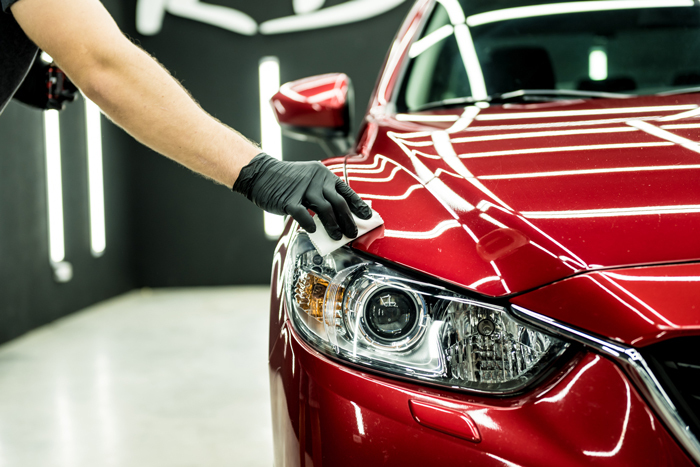
Fabric protection
Fabric protection might consist of nothing more than the dealer treating the car seats with a can of fabric protector from the supermarket. You can do that yourself for a lot less and with just as good a result.
Alarms
Alarms are of questionable value. It’s likely to be ignored if it goes off, and you could even be fined for noise pollution if it goes off without good cause. All new cars have engine immobilisers, usually with central locking, and that’s all you need. If you want a fully featured alarm system, compare the dealer price with aftermarket options – you might get a better deal elsewhere.
If you want to know how steal-able your model of car is, see the NMVTRC car security ratings.
New car extras to consider
Some accessories can be useful and appealing additions to your car, but you’ll probably get them cheaper – sometimes a lot cheaper – at auto stores rather than through the dealer.
However, some extras must be factory-fitted, or you might just want the convenience of having the dealer supply and fit the option for you. Dealer and factory-fitted accessories are also usually covered by the vehicle warranty, so it’s your call.
Floor mats
Floor mats help keep the carpet clean, but do you really want to pay anything from $70 to more than $100 for them when you can get aftermarket car mats for $40 or less? The same applies to seat covers and boot liners.
Do you really want to pay $70 to $100 when you can get aftermarket car mats for $40 or less?
GPS navigation
Factory-fitted dash-mounted systems offer bigger screens and integrated functionality and are less easily stolen than portable models (although car thieves sometimes target these high-end systems and cause extensive damage to the dashboard in the process). You might also be forced to get your software and map updates from the car manufacturer. Some manufacturers and dealers offer portable GPS systems, but they’re usually cheaper elsewhere.
New car extras to consider for safety reasons
Safety options are always worth having, and usually have to be factory-fitted, so you need to choose which ones you want before buying. To see the difference safety features can make, check out the ANCAP ratings.
Airbags: If side and curtain airbags aren’t standard in your chosen model, they may be available as options for a few hundred dollars extra.
Stability control: Also known as Electronic Stability Program and Dynamic Stability Control, this is an anti-skid technology that applies braking to individual wheels to stabilise the vehicle when it detects a situation such as fishtailing.
Full-size spare tyre: Space saver and temporary-use spare wheels are common, even in big cars. They’re only for emergency use and are designed to get you to the nearest garage. If you regularly drive long distances, especially in country areas where there aren’t as many garages nearby, a full-size spare tyre is a better option.
Other new car extras you might need
Headlight and bonnet protectors: These are really only useful if you often drive on unsealed roads.
Nudge and bull bars: These aren’t necessary for typical city driving and increase the risk of injury to others in a crash. But if you opt for one, a factory-fitted bar has the advantage of having been tested with the vehicle’s airbag system – the bar affects the vehicle’s behaviour in a collision. If you go for an aftermarket nudge bar, ask the supplier if it’s compatible with the airbags in your car.
Premium sound systems: These can make travelling much more pleasant, but have a listen to the car’s standard system first. It might be all you need, especially if it already has a smartphone connection, whether wireless or wired.
Roof racks: You can almost always find roof racks and roof luggage boxes cheaper aftermarket.
Special suspension: Sports (firmer springs and lower ride) or country suspension (with increased ride height) is useful for some drivers, but test-drive both the special version and the standard suspension so you know what you’re getting before you commit yourself to this option.
Towbars: If you’re after a towbar, get quotes from a couple of independent towbar installers to compare with the dealer price. The dealer price will probably be higher.
Window tinting: This is already standard on most cars. Do you really need even darker windows?

